chips
Latest
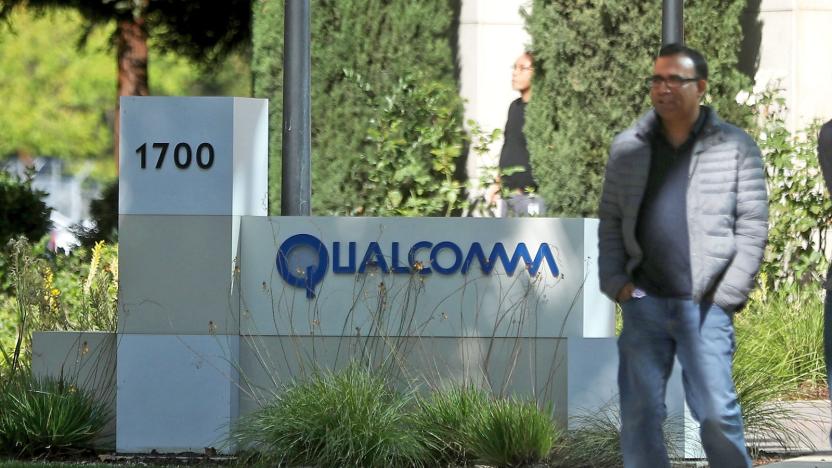
Broadcom offers to buy Qualcomm for a record $130 billion
Wireless chip manufacturer Broadcom has officially bid to buy its rival Qualcomm in a deal worth up to $130 billion. If successful, it would become the richest tech acquisition in history, nearly doubling Dell's $67 billion purchase of EMC in 2015. Rumors of the acquisition started popping up yesterday, and the offer will likely kick off a pitched battle between the two companies and regulators around the world.
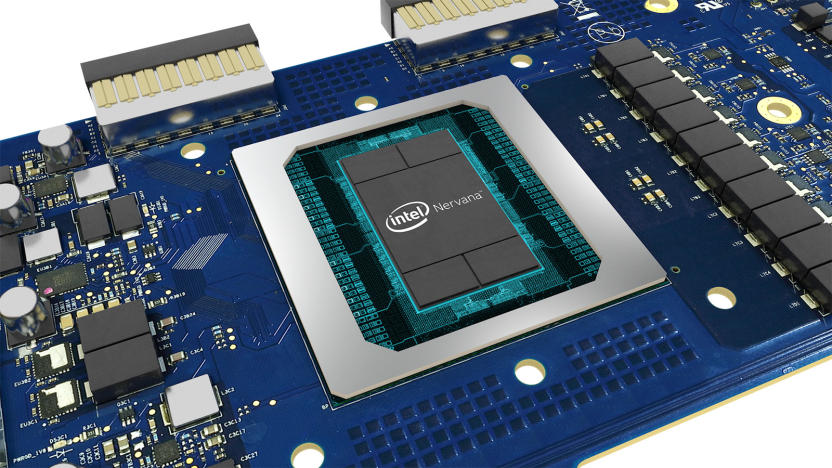
Intel aims to conquer AI with the Nervana processor
Intel makes some pretty fast chips, but none are very efficient at the hottest thing in computing right now: Artificial intelligence (AI). Deep-learning apps that do computer vision, voice recognition and other tasks mostly just need to run matrix calculations on gigantic arrays -- something that doesn't suit general-purpose Core or Xeon chips. Now, thanks to its purchase of deep learning chipmaker Nervana, Intel will ship its first purpose-built AI chips, the Nervana Neural Processor family (NNP), by the end of 2017.
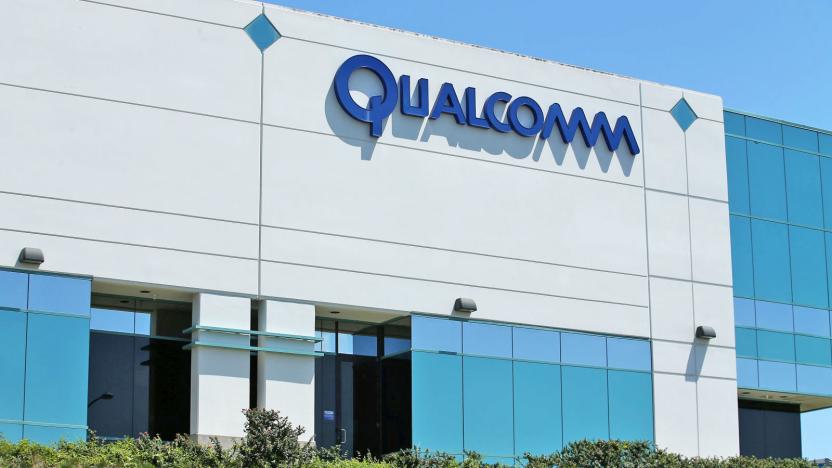
Qualcomm’s new chips will give rise to more smart speakers
The smart speaker trend started with Amazon's Echo, and now includes Google Home and Apple HomePod, but it could get a lot more crowded thanks to Qualcomm. It has just unveiled a reference "smart audio" design, including microphone, speaker and voice recognition tech that OEMs can use to build their own products without starting from scratch. What's more, it includes support for Amazon Alexa and Google Assistant, so OEMs will be able to add those voice assistants to a wider variety of audio products.
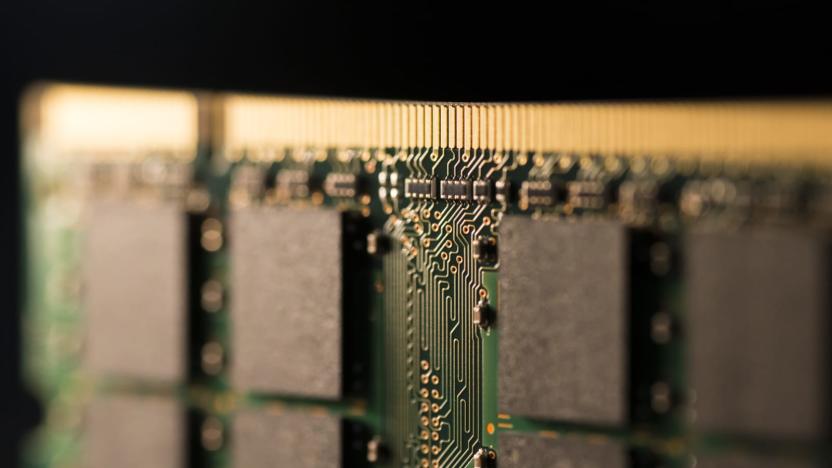
Apple and Amazon want a stake in Toshiba's memory business
Apple and Amazon are joining a Foxconn bid to purchase Japanese chip giant Toshiba's NAND manufacturing division, according to Nikkei. The deal could make it easier for the companies, particularly Apple, to access all-important flash memory more cheaply for iPhones and Kindles. Foxconn has at least five other bidding rivals, including two backed by the Japanese government, which is reportedly loathe to let Toshiba's chips fall into foreign hands.
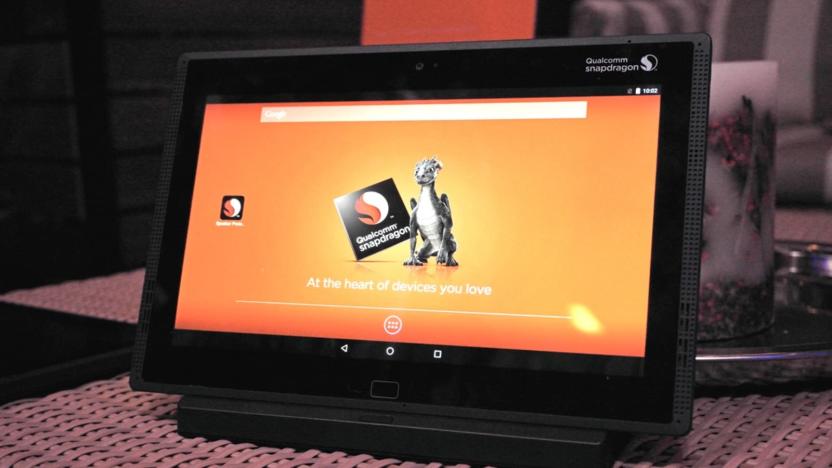
Qualcomm's Quick Charge 4+ is both faster and cooler
We all want more power with less charging on our mobile phones. Qualcomm, the maker of the Snapdragon 835 processor, has long been working to provide lower power usage and faster battery charging. The current Quick Charge 4 technology, announced in November of last year, promises five hours of charge in five minutes, a 20 percent improvement in charging speed and 30 percent improvement in efficiency than the previous Quick Charge system. The company announced even more improved specs today: the Quick Charge 4+ system, which the company promises is up to three degrees cooler, up to 15 percent faster and 30 percent more efficient than Quick Charge 4. The first smartphone to use this new charging technology will be the Nubia Z17 from Chinese phone maker ZTE.
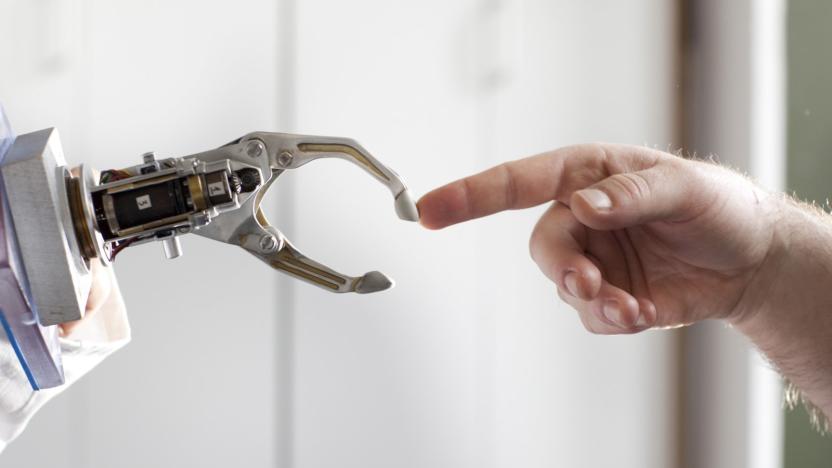
ARM targets your brain with new implantable chips
Elon Musk isn't the only one getting into the wetworks game. Chip designer ARM announced on Wednesday that it is pairing with the Center for Sensorimotor Neural Engineering (CSNE) at the University of Washington to develop a line of brain-implantable systems-on-a-chip that can interface between our squishy bits and the next generation of powered prosthetics.
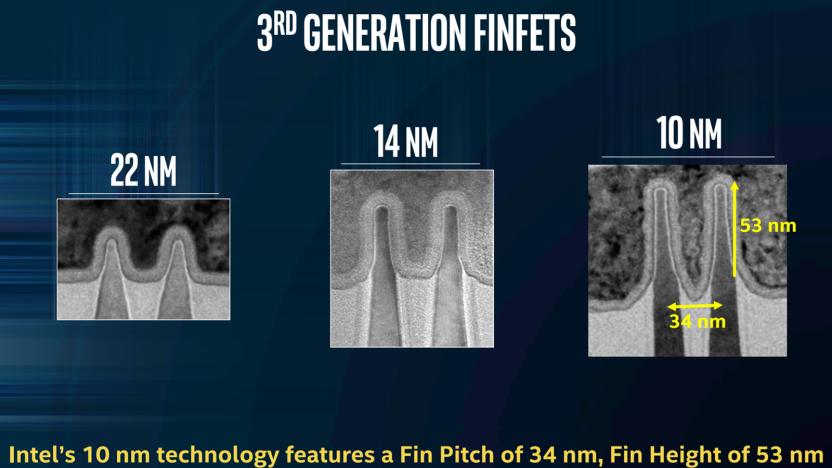
Intel: Our next chips will be a 'generation ahead' of Samsung
Intel says that when its long-delayed 10-nanometer Cannon Lake chips finally arrive, they'll be a "full generation ahead" of rivals Samsung and TMSC, thanks to "hyper scaling" that squeezes in twice as many transistors. That will yield CPUs with 25 percent more performance and 45 percent lower power use than its current Kaby Lake chips when they ship towards the end of 2017. Furthermore, Intel thinks the tech will keep Moore's Law going and give it a 30 percent cost advantage over competitors like AMD.
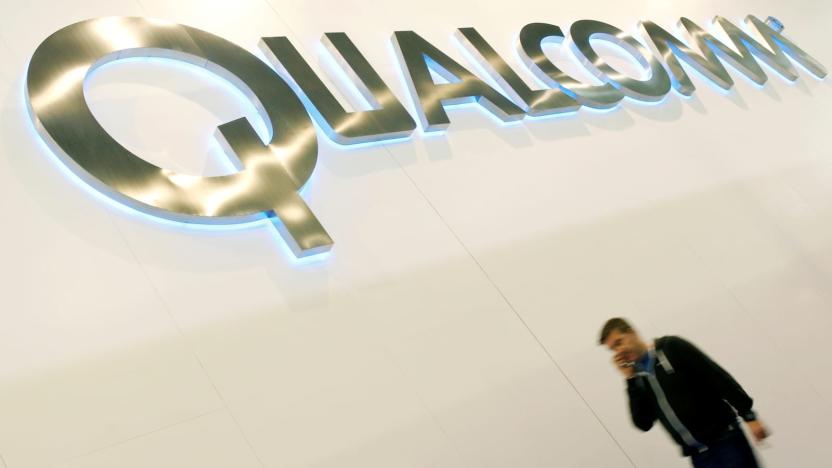
Qualcomm's chips bring 4G connectivity to dumb phones
In an effort to differentiate its processor lineups (and annoy tech publications), Qualcomm recently renamed its chips as "Mobile Platforms" instead of "processors." We can now see why: It just unveiled the 205 processor, er, Mobile Platform, its first low-end 200-series chips with LTE and no Snapdragon branding. The idea is to bring services like banking, Voice over LTE (VoLTE), and music or video streaming to feature phone users in Latin America, India and other regions just getting high-speed data services.
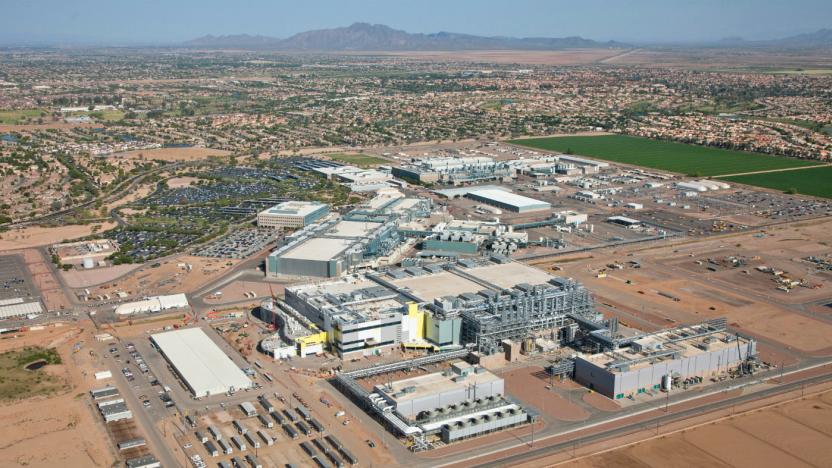
Intel finally plans to finish its Fab 42 factory in Arizona
Intel plans to complete Fab 42, a semiconductor factory in Chandler, Arizona, with an investment of more than $7 billion over the next three to four years. At its peak, the factory will employ about 3,000 process engineers, equipment technicians, and facilities-support engineers and technicians. Fab 42 will produce 7 nanometer chips and is "expected to be the most advanced semiconductor factory in the world" -- whatever that means.

Apple sues Qualcomm for $1 billion in royalty dispute
Apple has filed a $1 billion lawsuit against Qualcomm, claiming that for many years, the chip manufacturer has "unfairly insisted on charging royalties for technologies they have nothing to do with," CNBC reports. This marks the end of a rough week for Qualcomm: The Federal Trade Commission on Tuesday sued the company for its alleged use of monopolistic and exclusionary tactics within the baseband processor market. Apple's lawsuit piggybacks off of these claims. For reference, baseband processors are the chips that power network connectivity in mobile devices.

Qualcomm just announced the biggest chip acquisition ever
The smartphone world is starting to slow, and the companies that make the chips that go inside them are teaming up to stave off dwindling profits. Perhaps that's why Qualcomm today announced that it's picking up NXP Semiconductor for $47 billion, in what is set to become the biggest ever semiconductor deal.
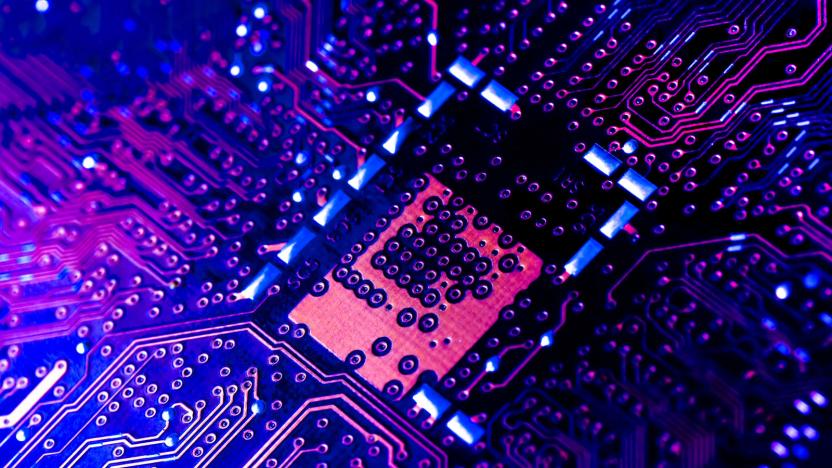
Researchers think chaos theory can get us past Moore's Law
Gordon Moore, co-founder of Intel, believed that the number of transistors on an integrated circuit would double every year or two. And, to his credit, that rule pretty much held out between 1965 and 2015, when the laws of physics began to get in the way. Now, researchers at North Carolina State believe that we don't need to obsess over ever-smaller transistors to make chips even more powerful. Instead, they've turned to chaos theory in the hope that mixing things up will provide the performance boost that Intel can't.

Qualcomm's new flagship chip loads apps 10 percent faster
Qualcomm has unveiled more details about its flagship Snapdragon 821 processor that we first saw in July. It's intended to fill the gap until a future next-gen chip comes along, so performance improvements over the Snapdragon 820 (used in Samsung's Galaxy Note 7) are decent, but not amazing. CPU performance is better across the board, with boot times, app loading and overall performance up to 10 percent faster.

NFL reportedly using ball tracking chips in pre-season games
The NFL is using sensors inside footballs during pre-season to track quarterback throwing speeds, running back acceleration, ball position and other stats, according to Recode. The chips are reportedly made by Zebra, a company that already already tracks player statistics for the league using shoulder pad-mounted chips. The NFL used the same ball tracking tech before at the Pro Bowl last year, but the experiment is a first for pre-season. Officials haven't decided if they'll continue it once the regular season starts.
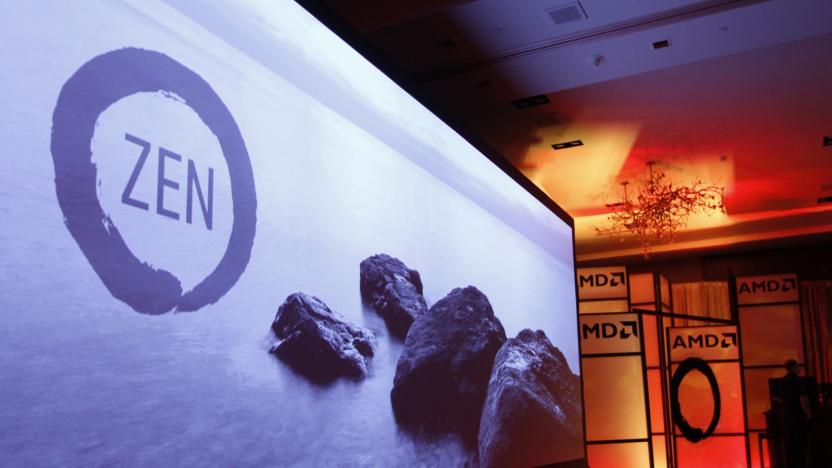
AMD crashes Intel's party: Powerful Zen CPUs are coming next year
A block away from Intel's Developer Forum in San Francisco, AMD brought together a select group of media and analysts to make one thing clear: Its long-awaited Zen processor actually exists, and it's on track to ship early next year for desktops. Surprisingly, the company is aiming directly at the high-end PC gaming market, whereas its last few chips appealed more to budget builders.

Intel to manufacture ARM chips in a bid for mobile domination
Intel is flexing its manufacturing muscle in an attempt to get inside your next phone. To do that, it has entered a licensing deal with ARM, according to a report from Bloomberg. Without this license, excess manufacturing space goes to waste. But with it, Intel can make processors for Apple, Qualcomm and Samsung -- the biggest players in smartphones. This gives Intel a much-needed boost in the mobile space that it couldn't achieve on its own.

Qualcomm is selling more chips for high-end smartphones
Qualcomm shipped more Snapdragon chips this quarter than even it expected, and for that reason (and others), made more money. It reported sales of 201 million high-end chips, beating its estimates by at least 6 million. As a result, it raked in sales of $6.04 billion, up 3.6 percent from last year. Not coincidentally, Samsung also reported a very good quarter earlier this month, selling 15 million Galaxy S7/S7 Edge models. The company is, of course, back to using Qualcomm Snapdragon 820 chips (which it actually builds itself), after it stopped with the Galaxy S6.

DARPA wants modular chips for its killer robots
To add smarts to machines, you need to design circuits and chips, a time-consuming and costly business. The US military's skunkworks arm, DARPA, wants to change all that with its new "CHIPS" program. The goal is to put entire circuit boards on modular chiplets, then tile them together to make a device. That would allow feats like "identifying objects and actions in real-time video feeds, real-time language translation, and coordinating motion on-the-fly among swarms of fast-moving unmanned aerial vehicles," DARPA said in a blog post.

Intel is officially slowing down the pace of CPU releases
To make consumers crave its next generation of CPUs, Intel has produced chips on a yearly tick-tock cycle for the last decade. Thanks to the shrinking die sizes, that process may permanently become a three-step, according to financial documents spotted by Motley Fool. The company has already had significant issues going from 22- to 14-nanometers, and it extended the latter to a third generation with "Kaby Lake" chips. That was the first break from tick-tock, but Intel has now confirmed that the longer rhythm, which it calls "process, architecture, optimization (PAO)" will continue for its upcoming 10-nanometer chips.

China irate over US export sanctions against ZTE
The US government is slapping crippling sanctions on telecom manufacturer ZTE and the Chinese government is not happy about it. China's Foreign Ministry spokesman Hong Lei said that "China is opposed to the US citing domestic laws to place sanctions on Chinese enterprises," according to Reuters. "We hope the US stops this erroneous action and avoids damaging Sino-US trade cooperation and bilateral relations." The US announced the restrictions yesterday, saying the company planned to sell US-made equipment to Iran's largest telecommunications provider in 2012, in violation of US export restrictions to the nation.







